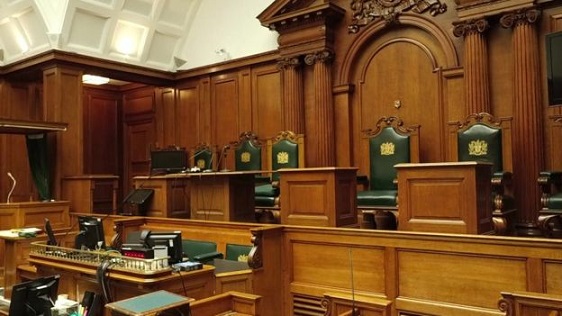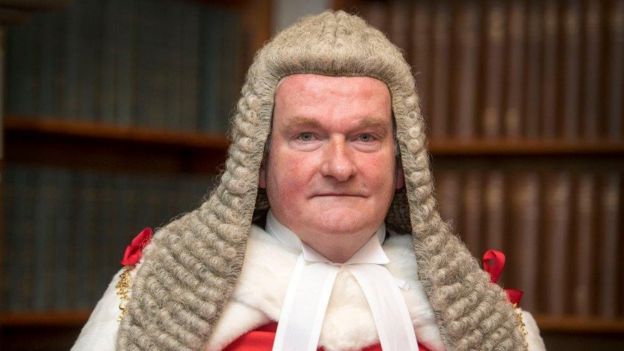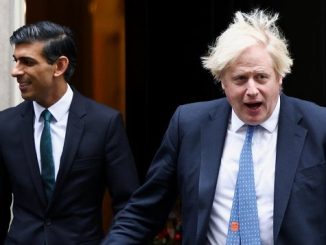
Barristers have demanded a halt to jury trials in England and Wales to stop “Russian roulette” with the health of legal staff, jurors and the public.
The Scottish government has already announced no new jury trials will start in the Scottish courts.
Courts are already in difficulty as jurors and court staff self-isolate.
The government says during the current phase of the coronavirus outbreak, courts and tribunals will continue to operate.
Pressure on the government to stop new and halt ongoing jury trials in England and Wales. is growing, as jurors and court staff up and down the country heed government advice to self-isolate.
Amanda Pinto QC, chairwoman of the Bar Council, which represents all barristers in England and Wales, called on the government to temporarily end jury trials during the Covid-19 outbreak.
“We are calling for the Ministry of Justice to put an urgent halt to jury trials for the time being,” she said.
“Barristers up and down the country are telling us that jurors are having to drop out of cases because they are self-isolating or, worse, coming to court when they should not, and thereby putting everyone’s health at risk.
“Being in a jury trial should not be a game of Russian roulette with the participants’ health.”
Court users “should not be expected to attend court, whilst the rest of the country is very strongly urged to work from home and to avoid ‘non-essential contact’ and ‘confined spaces’,” Ms Pinto argued.
Despite government advice to work from home and avoid contact with others, the latest HM Court Service guidance says: “Jury service is one of the most important civic duties a citizen can undertake and is an essential part of the criminal justice system.
“If you are serving on a jury now, your jury service will continue as normal and you are expected to attend court unless you have a reason not to (for example, you have symptoms or need to self-isolate).”
Jurors considering the alleged murder of PC Andrew Harper were sent home on Tuesday after one of them fell ill, while yesterday a juror in the trial of Manchester Arena bomb plotter Hashem Abedi was discharged from service after they went into self-isolation over the weekend.
Scotland and Northern Ireland
There is now a divergence between Westminster and the court systems of Scotland and Northern Ireland.
On Tuesday, the Scottish government announced: “No new criminal jury trials will be commenced or new juries empanelled until further notice.
“This will be kept under review.
“Where jury trials have already commenced, these will run to conclusion of the trial, if practical to do so.”
In Northern Ireland, there will likewise be no new jury trials for the foreseeable future after an announcement by the Lord Chief Justice, Sir Declan Morgan.
But jurors serving in a Crown Court trial or an inquest that has already started should continue to attend, the Belfast Telegraph reported.
Many lawyers believe it will be only a matter of time before Westminster follows suit.
‘Remote’ hearings
The Lord Chief Justice, Lord Burnett, said there was an “urgent need to increase the use of telephone and video technology immediately to hold remote hearings where possible” in England and Wales.
Emergency legislation is being drafted which is likely to contain clauses that expand the powers in criminal courts to use technology in a wider range of hearings.
The Civil Procedure Rules and Family Procedure Rules provide for considerable flexibility.

The halting of jury trials raises a host of highly challenging issues for a criminal justice system that is already beset by time delays due to a reduced number of court sitting days.
With some defendants held on remand, the time limits for holding in custody are likely to have to be extended.
In addition, barristers and solicitors fear they will not be paid and could go out of business or have to lay off staff in law firms and sets of chambers.
Smaller juries?
Some believe another option to keep the system going might be to reduce the number of jurors.
During World War Two, legislation was passed to allow juries to sit with seven members, except in murder and treason cases.
The Law Society Gazette reports that one family judge has imposed emergency measures in Berkshire and Oxfordshire, ordering lawyers to stay at home if possible, despite the government claiming courts will continue to “operate normally”.
In an email, His Honour Judge Moradifar, the designated family judge for Berkshire, said all suitable hearings should be conducted via video link, Skype or telephone.
Physical presence in court buildings “should be kept to a minimum”, witnesses should give evidence remotely where possible and, if coming to court is unavoidable, attendance should be limited to advocates, said the judge.
Source: bbc.co.uk






Be the first to comment